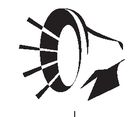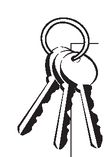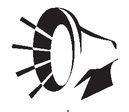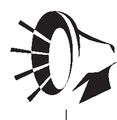Chapter 11
Get Connected
In This Chapter
• Technology simplifies and organizes your business
• Three products you can’t live without
• Basic home office equipment
• Technology insurance and security
The mortgage business is rapidly becoming a paperless industry. While people skills are critical to becoming a successful mortgage broker, if you’re not comfortable using a computer and other assorted gadgets—get over it. Your company office is just one place where you’ll be working. You need to have the ability to work wherever you are. You need to be able to access current rates, return calls, check files, network, draft letters, and answer e-mail, whether you’re at a realtor open house, in your car, or at a client’s office or home.
You don’t have to work 24/7, but you should always be connected. I like gadgets more than most, but these aren’t toys. Computers, cell phones, and handheld organizers all let you work smart and fast.
In this chapter, you’ll get an overview of how to use technology effectively to streamline, simplify, and optimize your time and work.
Cellular-ly Speaking
Choosing a cell phone for business isn’t about color, ring tones, or games. This is probably your most important business tool, although it’s a close call with your laptop and PDA. Cell phones have essentially eliminated the need for a pager.
Cell Phone Etiquette
Cell phone etiquette is more than just good manners. It’s a reflection of you as a professional. Nobody likes a boor, and talking loudly on your phone in a restaurant, or not switching to the vibrate mode for your ringer when in a meeting, is just bad form. Remember:
• Never take a call during a business meeting.
• Maintain a 10-foot zone from others when talking on your cell.
• Keep business calls brief and to the point.
• Use an earpiece in noisy locations so you can hear the amplification and modulate your own voice.
• Tell callers where you are when on a cell phone so they can anticipate possible disconnections.
Do You Need a Cell Phone and a PDA?
If you’re going to invest in a Personal Digital Assistant (PDA)—which I think you should—do you still need a cell phone? At this point in time, I’m going to say yes, you still need both. I’m the first to admit that I’ve got the fastest thumbs on earth from all the typing I do on my Blackberry, but I’m not ready to give up my cell phone yet. (Palm, Handspring, Blackberry, and Treo are all PDA brands.)

Heads Up!
Being able to discuss business anywhere doesn’t mean you should. You need to be discreet and remember that when in public, you don’t know who is listening to your end of the conversation and what they can do with the information.
Now part of my rationale is the suspenders and belt theory. I want some backup in case the network of either my cell phone or PDA is down. I also want an alternative if I lose one of the gadgets. I figure that would be some seriously bad karma if I lose both on the same day. I can insure for the loss of either unit, but by having backups in place, I can cover the loss of the data.
Here are some other reasons to have both:
• “Smart” phones that do many of the same functions as a PDA are very expensive. Incompatible technology among smart phones means if you switch carriers, you may not be able to take your smart—expensive—phone with you. You’ll be able to take your number, but the phone itself probably will be unusable. If you buy a generic Treo that can be used with almost every carrier (but not all), you will probably forfeit the deals and rebates normally offered by a cell phone provider to get you to sign up. Currently, the cost of these multifunctional phones is high, as are the plans that support them.
• If you lose your smart phone, then you have neither a phone nor a PDA.
• I find the size of smart phones too bulky. Smart phone screens are smaller than PDA screens, and size matters. I think the size and weight of my PDA is easy to use, and coupled with a lightweight cell phone, very convenient to carry around.
No question that the technology is moving fast, and soon it will probably be one gadget for all functions. But for now, I keep a cell phone and PDA in my pockets.
Don’t Cheap Out
Having just suggested that smart phones are too expensive, I’m going to say that you need to invest in a good-quality cell phone. You need to be able to reach—and be reached by—current and potential clients, the loan processors in your office, lenders, realtors, contractors, appraisers, title companies, attorneys, and more. A missed call is money lost.
• Look for a phone that uses lithium-ion batteries. They last longer, weigh less, and give better performance than nickel-metal-hydride batteries. Ideally you want a phone that has a rated talk time of five hours (3½ hours minimum).
• In addition to the desktop charger that comes with the phone, buy a charger that feeds off your car lighter socket to take advantage of travel time.
• Make sure the address book can handle at least 600 names (preferably 1000), with multiple entries per contact. Some phones permit you to add additional info like e-mail addresses, website URLs, and street addresses. Having all the information at your fingertips is always helpful. Get a cell phone that has the ability to sync with your PC. This avoids having to type in the data and makes updating easy for your cell phone, PC, and PDA.
• Conference calling is another helpful feature. It reduces the number of phone calls you need to make if you can get all the parties on the line at the same time. For example, sitting in my car on my way to a closing, I held a quick conference call with the bank underwriter and Bill K, one of my clients, who was buying his first house. Bill had recently bought the small printing company where he’d previously been employed. The lender was concerned about the profit and loss statement for the current year. Bill explained that because of the sale, the previous owner had allowed some of the older contracts to elapse. But within the last two months, new contracts had been signed, two of which were for multiple years. I suggested that Bill submit copies of the contracts. The underwriter agreed that if the documentation supported the explanation, he’d approve the loan. It was a 15-minute conference call with me sitting in the parking lot of a shopping center that saved the deal.
The Bluetooth Solution
Named for the tenth-century Viking king Herald Bluetooth (who says geeks don’t have a good sense of humor?), Bluetooth is a short-range wireless technology that simplifies multiple tasks. You can leave your phone in your pocket or briefcase and still be connected using a Bluetooth headset. No wires! You can exchange contact and scheduling info with other Bluetooth-enabled phones or print directly to a Bluetooth printer (must be relatively nearby). Best of all, it gives your laptop or PDA wireless high-speed Internet access via your Bluetooth phone.
Personal Digital Assistant
Being a mortgage broker is not for the faint of heart. You have to believe in yourself, trust your judgment, and be able to multitask. Your days are chock-full of appointments, follow-ups, calls, letters, cajoling, networking, problem solving, marketing, and paperless paperwork. You need help and without sounding like a walking advertisement for PDAs, that’s just what I’m going to do. My PDA is my office in my pocket.
With it I can keep tabs on interest rates (and notify clients if I think they need to lock in), send and respond to e-mails, text message, check websites, and organize my calendar. I use it to take notes at meetings (you need to be comfortable with the miniscule keyboards, but practice makes perfect).
There’s a huge range of PDAs available and more coming on the market. You need to test-drive the different models to find one that feels comfortable to use, isn’t too heavy, and easily syncs with your computer.

Did You Know?
Quick time saver! Be sure to load a program to track expenses on your PDA. You may be able to deduct office and travel expenses on your tax return (check with a tax professional). This will simplify your bookkeeping, although you will still need to save receipts to document expenses.
Computers
If you aren’t comfortable with computers, then you need to find another profession. You will help clients complete and submit applications online, send and receive information over the Internet, do online research, keep track of the status of each mortgage by checking computer files, and much more. Computers will simplify many of your tasks, and probably drive you crazy sometimes when you hit a glitch.
When you first join your firm, you’ll want to know if they provide you with a computer(s), what software is already loaded, and what training you’ll receive (see Chapter 8).
I recommend a laptop as an integral part of your mobile office. I use mine as my primary computer so that I always have the most curent information with me. I do a daily download of data from my laptop to the desktop computer in my office to keep both as a backup and so that others in the office can access the information as needed. I also synchronize with my PDA—and yes, this is the boring stuff, but absolutely necessary.

Did You Know?
Keep a basic computer reference book on hand to troubleshoot problems. The Complete Idiot’s Guide to Computer Basics (Alpha Books), now in its third edition, by Joe Kraynak, is a great primer for tech novices and even those who think they’re pretty computer savvy.
Just to be clear, synchronizing databases happens when you connect two pieces of equipment (for example, laptop and PDA, laptop and office computer), and electronically compare the information on each. A program will then automatically update both machines.
Which Laptop Is Right for You?
Laptops come in different weights, sizes, processor speeds, and memory. Buy the best you can afford, but with the full knowledge that tomorrow a new model will be available that will be faster, lighter, and able to do more. But the fact is, generally speaking, you don’t need it to do much more. Most laptops are more than adequate to handle the mortgage broker software, word processing, and Internet functions that you’ll require. If you don’t overload your computer with games, music, downloads of movies, and so on—if you treat your laptop as a piece of office equipment—then don’t worry about the built-in obsolescence of every computer.
But there are a couple of tips that I’ve found important in choosing a laptop:
• You’re going to be lugging around the laptop, so make it as light and thin as you can afford.
• Be sure your laptop is wi-fi (wireless) compatible. This will give you access to the Internet in a wide variety of settings, including many corporate offices, restaurants, and airports.
• A long battery life is key to effective use of a laptop. Look for laptops that allow you to add an extra battery. Conserve the battery by plugging in when possible.

Did You Know?
By 2006, there are expected to be 89,000 public wi-fi network access points and more than 99 million wi-fi users worldwide.
• Invest in a warranty/service contract. Laptop repairs are expensive.
• Check the availability of technical support by the laptop manufacturer. You’re looking for a manufacturer that provides 24/7 support.
• Avoid laptops with built-in components. These are difficult to upgrade.
Software for the Mortgage Broker
Your laptop should be loaded with all the software that you would find on your office computer. That includes:
• Copies of the mortgage broker software, such as Calyx, Contour, or Genesis, that your office uses. These software packages generate the following forms: Fannie Mae Uniform Residential Loan Application (forms 1003 and 1008), disclosure statements, authorization to release information, Truth in Lending document, Good Faith Estimate.
• Software program, like TCalc, that provides additional financial calculators. These include:

Rent vs. Buy—allows you to compare the costs of renting a residence and buying a house.
Mortgage Qualification Calculator—shows you how much income a borrower needs to buy a home, based on income and other factors.
Mortgage Payment Calculator—displays the mortgage payment for the term of a loan.
Refinance Calculator—helps borrower determine if it’s the right time to refinance.
Debt Consolidation Calculator—shows borrower how to reduce monthly payments and save money with a home equity loan or refinance.
Monthly Payment Calculator—allows you to explore the outcome of changes to the loan balance, mortgage term, and interest rate on the monthly principal and interest payments.

Heads Up!
Pay for expertise when you need it. If you need to hire a computer techie to teach you how to use the software programs, sync the programs between your laptop, office mainframe, and PDA, or install new software, do it. It’s a good use of time and money. For additional computer training, check your local continuing education programs, community colleges, and private companies.
• Word processing program. Check to see which program the office uses. Most businesses prefer Microsoft Word, but you also want to know which version so that you can sync with your office.
• A browser for Internet access. Check to see how you access the Internet when in a wireless location.
• Password manager. This is software that remembers the passwords for all the sites you contact. Each lender will require a password in order to access their site. These passwords expire at different times, and you’re not permitted to use the same password twice. This software will prompt you with the correct password for each site. I use Outlook Express Password Recovery Master, but there is other software that does the same job.
• Firewall, antivirus, antispam protection, spyware protection. You need to protect your files with the most current antivirus protection, as well as a strong firewall to keep out hackers. You may need to consult a computer techie to make sure that you can access the company’s files via your laptop. Sometimes the company security firewall makes remote accessing difficult. Given the nature of the information you have for clients, the need to protect their privacy is paramount.
• Automatic backup. Your company will probably have a built-in automatic daily data backup with information downloaded to a secure location. You need to develop your own backup system for your laptop. I think you should do it on a daily basis, if possible, but certainly no more than a week should go by between backups. Whether you subscribe to an automatic system or backup using CDs, zip drives, or even just floppy disks, the possibility of not being able to retrieve data lost is incalculable.

Heads Up!
I use an online, off-site, automatic backup system for my company’s files. The backup is daily, at night (after office hours). Off-site is critical because in the event of fire or other disaster, no matter how many disks or zip drives you’ve used to back up, if the data is on-site, it’s likely to be lost.
• PowerPoint. This program allows you to create and present programs with music and photographs, for use with realtors, builders, contractors, lenders, and clients.
• Excel. This program allows you to develop spreadsheets to track clients, loans, lenders, and so on.
• Accounting and check writing. You’ll want a good program to manage your business accounts and keep clear records for tax purposes. These programs allow you to itemize as you go so you’ll have a clear printout at tax time.
Home/Car Office Equipment
To complete your home office, mobile and fixed, there are a few other pieces of equipment you’ll need.
Printers
This is a tough call, but I’m going to suggest you need both a printer for your home office and a portable one.
Manufacturers will often include a color printer as part of a package deal for new computers. Keep it at home.
The portable printer is an expense that is debatable but probably worth it. You will be on the road a lot and you’ll want the ability to print applications, information sheets, PowerPoint pages, driving directions, web pages, and the like.
Look for these features in a portable printer:
• The lighter, the better. Portable printers range from two to five pounds, plus battery and paper. You’re lugging enough already, so cut the weight if you can.
• You want a printer that can be battery operated, if necessary. It costs a little more, but the flexibility is worth it.
• A model with a Bluetooth adapter that permits you to print wirelessly is a good investment. You may be able to print directly from your Bluetooth-enabled cell phone.
Scanner, Copier, and Fax Machine
While your company office will probably have all these machines, it’s worth it to have access to them at home as well. There are multipurpose machines that combine all three of these functions. Just a small heads up that sometimes combining so many functions limits the quality of the specific elements. Also, with prices coming down on all these products, you may find it cheaper to purchase them individually. Check Consumer Reports for product reviews.

Heads Up!
You may not need a free-standing fax machine, just the ability to get and receive faxes. Here’s how. You can subscribe to a service that assigns you a local fax number. But faxes are actually forwarded to you as e-mail attachments. You can also send faxes from your computer (even your laptop) so that you have fax ability wherever you are. For under $10 a month (plus activation fee), you have the ability to fax or receive up to 100 pages a month—all tax deductible as a business expense.
Similarly, you want to be able to scan in documents and transmit them via e-mail, which a scanner will facilitate. Finally, for mass copies you’ll head for the office copy machine or Kinko’s, but it’s helpful to be able to make single copies of documents at home.
You’ll also need some peripherals and accessories to make your portable home office work. Make sure you carry extension cords and adapter plugs, power cable, and paper. Spend time investigating which carrying case works best to hold your laptop, portable printer, files, and accessories.
The Least You Need to Know
• Invest in the best laptop you can afford.
• Given the state of the technology, you should still have separate cell phones and PDAs.
• Hire a computer professional to help you learn and manage the software and technology you need.
• Printer and fax access in your portable office will permit you to work as effectively when you’re on the road as when you’re in the office.
..................Content has been hidden....................
You can't read the all page of ebook, please click here login for view all page.
